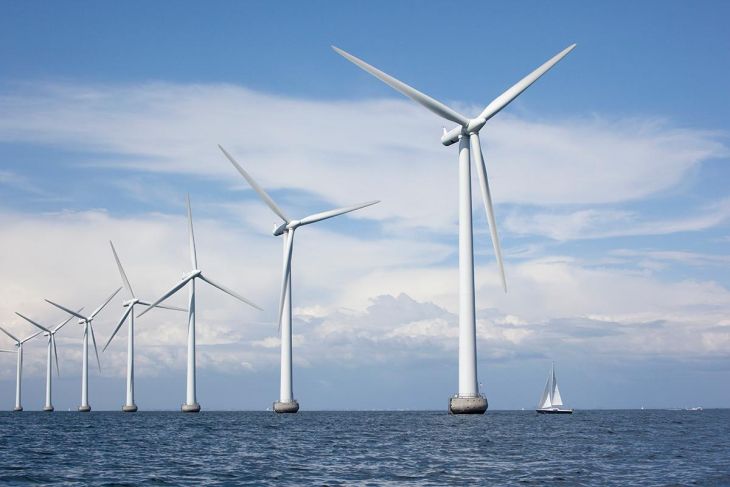- Name
- Johns Hopkins Media Relations
- [email protected]
- Office phone
- 443-997-9009
- JHUMediaTeam
Ben Schafer is the director of Johns Hopkins University's Ralph O'Connor Sustainable Energy Institute and professor of civil and systems engineering at the university's Whiting School of Engineering. A structural engineer, he is known for his research in structural stability and the mechanics and design of thin-walled frameworks. Schafer was part of the team that supported the development of a novel wind turbine tower support system technology that brought its first commercial-scale plant online in 2023.

The recent cancellation of two New Jersey offshore wind farms would seem to deal a blow to President Biden's clean energy goals. Do you agree?
I don't know that it is such a big blow in the larger picture. The overall goal and process for our clean energy goals, including offshore wind, remains sound. However, a variety of factors led Orsted, the Danish wind power developer tasked with creating the wind farms, to make the decision not to proceed, despite their desire to work in the U.S. market. Some of these included the company's financial position with respect to larger macroeconomic forces, concerns about supply chains to construct and build the wind farms on time, real and important local New Jersey politics and sentiment, and other undisclosed considerations. That said, we know we are in a race to make the transition to renewable energy, and we just found out that we will be moving a bit slower than hoped, especially in one of our most populous regions—and that is disappointing for sure.
What does this mean for efforts to convert the grid to more renewable energy sources going forward?
Right now, developers, manufacturers, and the state and federal government are all, simultaneously, collectively figuring out what it takes for us to make this massive leap forward in clean energy. With each failure, we learn lessons about how to do better next time and what factors are critical to success. Also with each success—like the first 13 MW offshore wind turbines installed at Vineyard Wind 1 (offshore of Massachusetts) on Oct. 19—we learn best practices. This process is not going to be easy; this is a societal-scale change. Some companies will lose more money than ever before, and some will make more than ever before. That is what big change looks like.
Do you think this will affect the future of offshore wind energy generation in the U.S. overall?
The future of offshore wind in the Atlantic, the Pacific, and the Gulf of Mexico is bright. This is not to say it will be easy, or that numerous challenges don't exist. Our transition to renewable energy is an existential challenge, and the advantages of offshore wind are large enough that humanity must take the leap. Certainly, we can see that long-time scales and challenging supply chain issues should push us towards more reliable solutions, and perhaps not as much on the next biggest turbine. Also, as we can see in much of the recent U.S. industrial policy (like the CHIPS Act and the Inflation Reduction Act), the U.S. is more willing than ever before to incentivize domestic manufacturing, so it is important to closely watch the U.S. companies in addition to global players like Orsted. Transitions in how we do things are hard, and no matter how much we try are always perceived to have winners and losers and when these ups and downs become politicized, it is bad for all of us. We should collectively hope that everyone learns from this setback, and we get smarter and do better with the next project.















